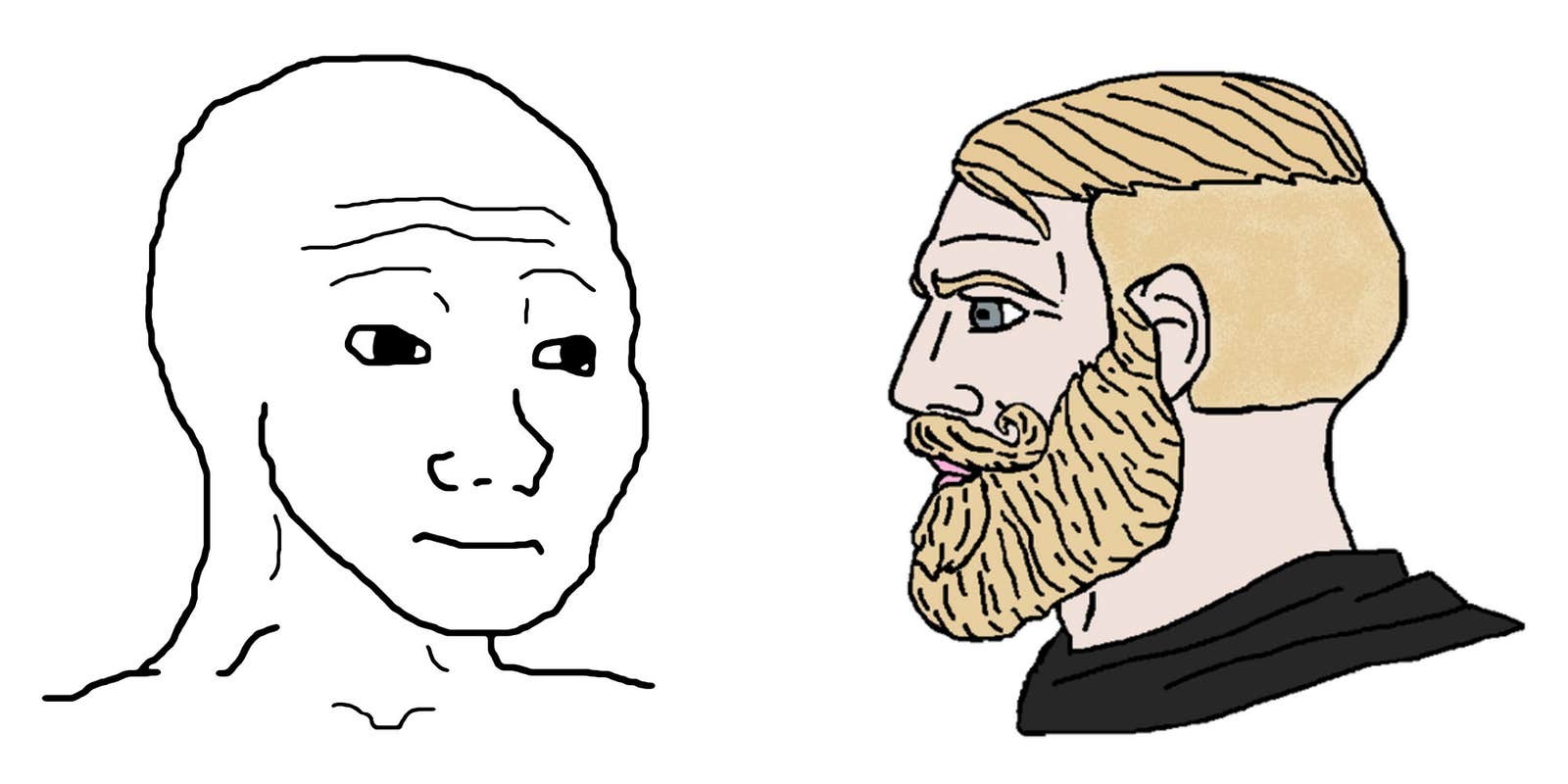The Yes Chad meme, also known as “Nordic Gamer,” traces its roots to an online comic character of a stoic, blond, blue-eyed man often called a “Chad.” This character typically embodies hyper-masculine indifference, responding to lengthy diatribes with the simple affirmation: “Yes.”
Emerging from highly problematic forums on 4chan, specifically a 2016 thread discussing ethnic superiority, “Yes Chad” began as part of a meme format known as Nordic/Mediterranean. Its origins are tangled with bigoted commentary, yet the character’s journey from a racial caricature to the symbol of composure is illustrative of the constantly changing internet.
— Yes Chads (@YesChads) November 2, 2023
The Yes Chad meme gained traction in August 2019 when Twitter user @yachs_91 posted a combination of the Grayons meme with a Nordic or Mediterranean exploitable variation. The post quickly garnered attention and widespread use on platforms like Twitter, 4chan, and Reddit. Its popularity stemmed from its use as a reaction image and an exploitable template, which made it adaptable to multiple contexts.
Yes Chad meme: the evolving symbolism
Despite its problematic beginnings, the “Yes” meme evolved beyond its original meaning. It has been adopted by diverse internet communities and repurposed to signal calm confidence in the face of sometimes toxic online debates and criticism. This figure stands unfazed by insults and provocation, representing a steadfast, calming presence against the backdrop of the internet’s typical uproar.
#YES
— Yes Chads (@YesChads) October 30, 2023pic.twitter.com/do2ZVwuZWf
Cultural variations and representations of ‘Yes Chad’
“Yes Chad” has transcended its initial incarnation to now include different ethnicities. As a versatile comic character, it appeals to a broader idea of self-assurance rather than any particular racial identity.
The meme features numerous scenarios, including ironic acknowledgments of life-changing moments and generational comparisons highlighting the disparate life milestones between parents and their adult children.
Controversies and reclamation
Despite its widespread adoption, the history of the Yes Chad meme is still subject to controversy. Its connection to racist and anti-Semitic themes raises questions about the suitability of its use online.
Critics argue that employing characters with bigoted origins may inadvertently perpetuate the symbols of hate. Conversely, proponents of re-appropriation suggest that such use can neutralize negative connotations, drawing parallels to other reclaimed symbols in social movements.
Hey @YesChads pic.twitter.com/14opkK5zfx
— Kurt Wuckert Jr | GorillaPool.com (@kurtwuckertjr) October 26, 2023
In its current form, the Yes Chad meme serves as a testament to the internet’s ability to redefine and reshape cultural symbols. From a contentious symbol on fringe forums to a mainstream internet phenomenon, the Yes Chad meme has come to encapsulate an aspirational archetype of online discourse: a figure that transcends the chaos of the digital age through unwavering self-assurance and simplicity.
Whether it can thoroughly shake its origins and be universally embraced as a benign emblem of online humor and stoicism remains a subject of debate, highlighting the complexities of the ever-changing language of the internet.


